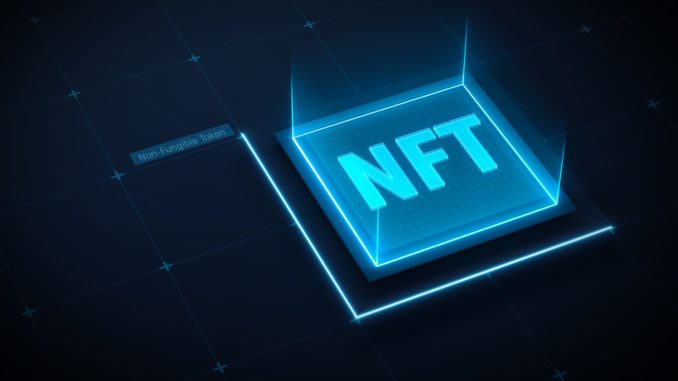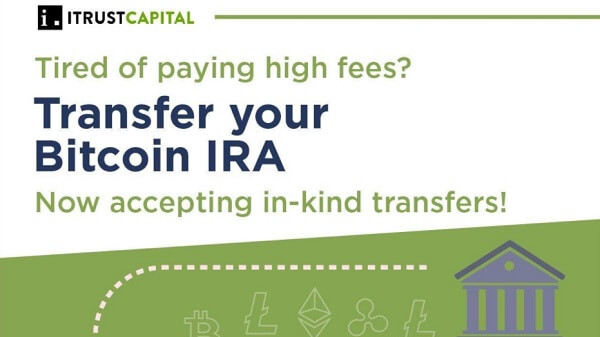
“Blockchain expertise gives no reduction to house owners that lose the non-public digital keys that show their possession of a blockchain-recorded asset. Individuals who lose their non-public keys are out of luck.”
Non-fungible tokens, or “NFTs,” have captured headlines, providing the perfect mix of poorly understood technology and incredible sale prices. The primary patent NFT auction by True Return Programs and the newly introduced patent NFT exchange underneath growth by IPwe and IBM couldn’t be higher timed to reap the benefits of the thrill. With all the hype, corporations understandably ponder whether they should “tokenize” their patent portfolios to NFTs on this first wave merely to get forward of the inevitable transition.
For many corporations, prudence counsels stepping again and letting the applied sciences and the markets mature. First, blockchain expertise, because it presently exists, solely creates readability of possession although harsh outcomes. Second, creating extremely liquid patent license markets might intervene with the prevailing patent methods of many patent house owners.
Blockchain
Blockchain is the spine for the proposed patent NFT exchanges and acts as a “distributed ledger” containing agreed-to info. Members within the blockchain add blocks to the blockchain sequentially, with every block together with a hash of the block earlier than it. If a number of members maintain copies of the blockchain, any change by anybody blockchain participant can simply be recognized by the others. The lively members holding copies of the blockchain vote whether or not so as to add the brand new block with its verified transactions. The tip result’s a shared file with a set of info that at the very least a majority of members agreed is right. Blockchain gives the open transparency wanted to imbue belief within the accuracy and validity of transactions recorded on the blockchain.
Non-Fungible Tokens and One-of-a-Sort Monitoring
The blockchain system is kind of helpful for establishing a sequence of occasions and preserving observe of objects. Tracked objects could be actual, like cargo shipments, or purely digital, like cryptocurrencies. Additional, blockchain fairly simply tracks particular person objects. For instance, blockchain doesn’t simply observe a amount of bitcoin by way of a transaction. Fairly, blockchain traces every particular person bitcoin by way of the transaction. It might be like a financial institution tracing a serial quantity for every greenback and coin in your direct deposit paycheck.
Due to this individualized monitoring, blockchain is effectively suited to trace issues which might be one-of-a-kind by way of a collection of transactions. The idea of an NFT is to create a singular digital fingerprint, which could characterize one thing like digital artwork or a well-known online meme. Then, that digital fingerprint could be tracked by way of the blockchain over transactions from proprietor to proprietor like a cryptocurrency coin. The thought is that the proprietor of the NFT might be handled because the proprietor of the “authentic.” A patent is a singular authentic authorized proper that may be represented as a singular NFT. A patent NFT system tracks possession of and transactions involving the patent and/or patent licenses on the blockchain represented as NFTs.
Possession Certainty By way of Harsh Outcomes
Understanding the implications of a patent NFT market change requires understanding that cryptocurrencies and NFTs should not purely technological improvements. Each contain guidelines governing the actions of the folks utilizing the blockchain that captures the NFT transactions. One such rule is the remedy of the present holder of the NFT or cryptocurrency coin as recorded on the blockchain as the actual proprietor with little, if any, expectation of additional inquiry. Norms, not expertise or legal guidelines, dictate whether or not folks select to deal with that blockchain file as definitively establishing possession. For instance, blockchain doesn’t observe off-chain asset transfers, nor does it assure that the present holder obtained the asset with out identification theft. Very like the legal guidelines defending a bona fide purchaser for worth, there could also be little safety for buying rights recorded on blockchain by way of a personal off-chain transaction. An off-chain possession switch that conflicts with an on-chain transaction could also be handled as void as in opposition to subsequent purchasers on the blockchain. Lastly, blockchain expertise gives no reduction to house owners that lose the non-public digital keys that show their possession of a blockchain-recorded asset. Individuals who lose their non-public keys are out of luck. Those that have their keys stolen by way of a data breach or identity theft can solely hope that the dimensions of the breach impacts so many customers that there may be sufficient votes by blockchain computing nodes to help wholly rewriting the blockchain through a fork.
Patent NFTs Profit from Readability of Possession, However at What Value?
For cryptocurrencies like bitcoin, these harsh outcomes are a needed value for a bitcoin to be as straightforward to spend or change as a greenback. Performing a due diligence search each time you buy a sweet bar is untenable. According to Cheryl Milone Cowles, Chief IP Officer of IPwe, readability of possession is a significant good thing about blockchain-based patent transactions. Cowles claims that “distributed community verification …gives the boldness of transacting with a transparent present title and historical past.”
Nonetheless, it’s unlikely that the advantage of low-cost readability of title in cryptocurrencies outweighs different negatives when utilized to patent possession. Patents are topic to present norms and caselaw relating to challenges to obvious possession. For instance, may a patent proprietor reeling from theft of their patent NFTs in a ransomware assault fairly count on a judicial listening to by which they could reestablish underlying possession? What authorized mechanisms and proof are acceptable in courtroom for proving patent possession within the type of an NFT the place there isn’t a standard written task doc? Whereas pace and ease of transaction are important to the usefulness of cryptocurrency, they aren’t important to the basic objective of a patent. Consequently, there appears to be no use to simply accept a system that depends on such harsh outcomes at current.
Undoubtedly, particular patent NFT platforms, just like the upcoming choices from IBM and IPwe, will go far past merely offering ‘bitcoin however for patents.’ It might be deeply unfair to imagine that these corporations with constant and spectacular observe information of progressive patent transactional experience haven’t improved on or eradicated these potential pitfalls. Nonetheless, potential customers of those programs ought to arm themselves with the information that the invocation of blockchain by itself is not going to ship commodities-like buying and selling ease to the patent world. As an alternative, enterprise leaders ought to have interaction with the expertise and perceive any trade-offs needed to acquire the advantages being touted.
Resale Markets Finish License Exclusivity
The convenience of monitoring transactions on blockchains gives many options that would readily help a extra liquid patent license market. Additional, due to the higher management relating to the license phrases, a patent proprietor utilizing an NFT system for license change may restrict the correct of license holders to promote and/or assert their license off-chain decreasing issues of unrecorded license transfers. Simple resale also can improve the worth of an asset and should permit a patent proprietor to reap a better return for the preliminary sale of a license.
Nonetheless, making a resale marketplace for non-exclusive licenses additionally ends the patent proprietor’s standing because the unique supplier of patent licenses. As an alternative of every potential licensee needing to undergo the patent proprietor to acquire a license, a possible licensee can as an alternative get hold of a license from a patent license NFT holder by way of the resale market. Many companies is not going to welcome this lack of exclusivity. For instance, a patent-owning enterprise would possibly readily present a license to its prospects or to companies in different industries. Nonetheless, the identical patent-owning enterprise might want to withhold such licensing to its direct opponents. Resale markets can frustrate such strategic licensing efforts.
Nonetheless, one can envision alternatives for top quantity patent licensors, reminiscent of from patent assertion entities, patent swimming pools, customary important patent house owners, and others, to creatively use sensible contracts on blockchains to seize charges for every resale. With out the excessive transaction prices of related litigation and extensively negotiated settlements, such patent licensors can doubtlessly improve their web licensing income whereas providing decrease license royalties by way of a patent license NFT change market.
Wait and See
Even in view of the problems mentioned above, blockchain applied sciences present unparalleled potential to enhance programs that observe possession. Accordingly, it’s troublesome to think about that NFTs is not going to finally play a key function within the patent system. Nonetheless, most corporations will miss little by ready to see how the system resolves these points. If the ensuing system matches with their enterprise fashions, there might be loads of alternative to leap on later.





 Bitcoin
Bitcoin  Ethereum
Ethereum  Tether
Tether  XRP
XRP  USDC
USDC  Solana
Solana  TRON
TRON  Figure Heloc
Figure Heloc  Lido Staked Ether
Lido Staked Ether
Be the first to comment